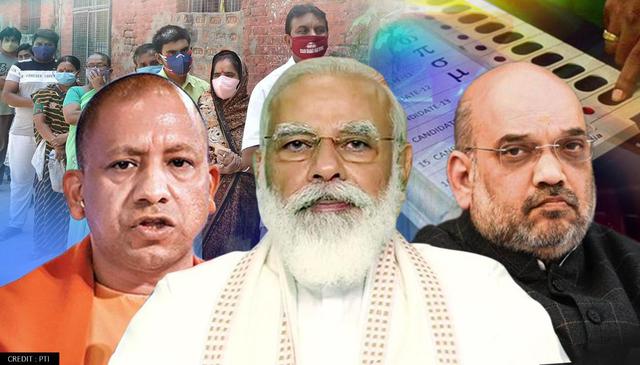By Coomi Kapoor ( 11 November 2021) – Judging by its huge defeat in West Bengal and its 50 per cent strike rate in the recent national by-elections, the BJP’s prospects for next year’s assembly elections in Uttar Pradesh, Punjab, Uttarakhand, Goa and Manipur appear a little shaky. But at the BJP’s recent national executive, Prime Minister Narendra Modi exuded confidence that the party will continue to be in a commanding position. He pointed out that the BJP has an army of committed cadres, while other parties revolve around just one family. (It is another matter that today, the BJP and the government revolve entirely around Modi.) More than Modi’s speech, it was the unguarded remark of Prashant Kishor, Mamata Banerjee’s campaign handler, which provided the reality check to those who assume that Narendra Modi’s days are numbered because of bad governance, ugly efforts at communal polarisation, a disturbing disregard for democratic norms and blatant manipulation of constitutional bodies and investigative agencies to settle scores with opponents.
Kishor’s assessment that the BJP will remain at the centre of Indian politics and will not go anywhere for the next many decades was a candid analysis by a seasoned and successful pollster who is now in the rival camp. His comments were made in the context of Rahul Gandhi’s blithe assumption that it is just a matter of time before the voters throw out Modi. In the past, swings for and against a political party were a recurring phenomenon in bi-polar contests, since anti-incumbency was a major factor in voter trends. Kishor comprehends what Rahul still fails to grasp. Modi, ably assisted by Amit Shah, has radically altered the rules of the game in India’s politics. The laidback gentlemanly Westminster style of government, the model at the time of Independence, has virtually withered away. The BJP is not a party that springs to life only during the poll season. It is a ruthless, full-time election machine, crushing those who stand in its way and uprooting all dissent, even within its own ranks. Political considerations contribute to most important government decisions. And if the government has messed up in demonetisation or managing the coronavirus pandemic, it has compensated by delivering on a number of schemes of individual benefit to the average Indian voter, whether building millions of toilets or providing running water.
True, the BJP may lose in some of the forthcoming state assembly polls, but the party’s focus is mainly on Uttar Pradesh. The BJP will leave no stone unturned to ensure that it retains control of India’s largest state, even if this entails elevating the status of Chief Minister Yogi Adityanath, no favourite of BJP’s master strategist Shah, and about whom even Modi has reservations, for not displaying the subservience expected from model BJP CMs.
During her confrontation with the UP police after the recent farmers’ tragedy in Lakhimpur Kheri, Priyanka Gandhi’s feisty, theatrical spirit dominated the news cycle for a few days. But are such well-publicised histrionics and expressions of sympathy for the downtrodden, a defining characteristic of her legendary grandmother Indira Gandhi, enough to save the Congress today?
Priyanka has complete charge of the Congress’s UP wing, but with little remaining of the party organisation at the grassroots, it makes better sense to join forces with other opposition parties, most notably the Samajwadi Party, rather than sniping at them.
Far from responding to the growing rumbles in the party led by the G-23 letter writers at the CWC meet last month, the Gandhis assumed they could cock a snook at the legitimate demand for a full-time president. Rahul Gandhi made clear that he would formally take over the reins of the party only at a time of his choosing. Meanwhile, the drift in the party continues. His mother Sonia Gandhi remains notional interim president though her health does not permit her to play an active role. Rahul may wax eloquent on the Modi government flouting the Constitution and democratic norms, but he has been equally cavalier in respecting his own party’s constitution. Internal party elections have not been held since 1998. Unlike Sonia, Rahul does not bother to consult experienced party elders. Driven by whimsical likes and dislikes, he is cocooned from getting genuine feedback. For instance, unilaterally inducting leftist radicals like Kanhaiya Kumar and Jignesh Mevani did not go down well with the party old-timers who feel overlooked for political lightweights and are uncomfortable with a centrist ideology’s lurch towards the radical left. The rapid attrition in the Congress illustrates the level of disillusionment.
It is not just genuine Congresspersons who are getting restless, even the Opposition appears frustrated. They do not see Rahul as a credible alternative to a campaign-savvy Modi in the 2024 general elections. Banerjee has already started extending the TMC’s geographical boundaries by successfully wooing discontented Congresspersons in Goa, Tripura and Meghalaya. Sharad Pawar’s NCP is similarly on an expansion drive at the expense of the Congress. And the AAP keeps nibbling at the Congress’s vote share. A split in the Congress in some form is inevitable in the near future, with the Gandhis’ refusal to relinquish their position as the chief challenger to the Modi behemoth. Rahul does not seem to comprehend that by refusing to step aside and renounce the claim to the post of PM-in-waiting, he may be doing a grave disservice to the cause. The Gandhis could be the roadblock to the emergence of a viable alternative to the ruling party.
This article first appeared The Indian Express.


